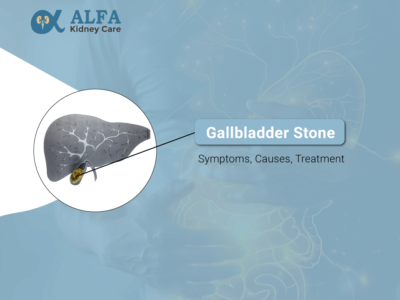The point of time when you get aware about your kidney disease decides the efficacy and type of treatment you will be put through. More than 90% of patients suffering from kidney disease get to know about their condition at the last stages of their kidney dysfunction. This is due to the unawareness of people about kidney association with the other activities of the body. Often time people do not relate any primary symptoms of their body with the kidneys. This causes the kidney to be degrading with time reaching the final stage of Kidney Failure. Here are some symptoms that you should associate with your kidneys because they might be some signs of kidney disease.
Unnecessary fatigue and lack of concentration
When your kidneys do not function properly, your blood becomes concentrated with waste. This leads to improper circulation and leading to make you feel unnecessarily tired. Proper blood circulation is the key for energy and concentration. Therefore, kidney disease may be the underlying cause of your lack of concentration. With more toxins in your body, your blood can become less concentrated with RBCs which can be another major cause of your fatigue.
Disturbance in your sleep-wake cycle
One of the unrecognized symptoms of kidney disease is sleep-disorder. This can include sleep apnea, daytime drowsiness, and even insomnia. Studies have shown that more than 40% of patients who suffer from end-stage kidney disease have kidney disorder as their symptom. One theory suggests that retention of toxins in the blood make it hard for people to sleep properly.
Improper urge to feel urinated
Polyuria or increase in urine output may be an important sign of kidney disease. This is due to the inability of the kidneys to reabsorb water while filtration. The tubules in the kidney become ill efficient during kidney disease making them weak to retain the load of filtrate and thus causing the patient to feel the urge to urinate again and again. Increase in frequency of urine output can also be a symptom of UTI and thus kidney infection.
Hematuria
Blood in urine is a common symptom to be associated with kidney disease. Glomerulonephritis and polycystic kidney disease are the most common kidney disease that has Hematuria as their symptoms.
In Glomerulonephritis, kidney is incapable to retain the blood cells while filtering it. As a result, blood is leaked out from the kidney into the urine.
In a polycystic kidney, the cysts are full of exposed veins making them susceptible to cuts and injuries. Any kind of cut causes these cysts to bleed resulting in Hematuria
Frothy urine
Frothy urine is the clearest indication of protein in the urine. Proteinuria is most commonly caused when the kidney filters are unable to separate protein from urine. Any kind of kidney disease can be the potential cause of proteinuria. One should never avoid this symptom of kidney disease as it can indicate serious kidney related disorders such as nephrotic syndrome.
Swollen feet and legs
Edema or swelling in feet, ankles or legs can be the sign of sodium retention in the body. This sodium is retained in the body due to decrease in kidney function. Edema can indicate other conditions such as heart and liver problems which could potentially lead to some kind of kidney disease. In this case you can even prevent the kidney disease to be ever caused in you. All you need to do is to notice yourself and take your bodily changes seriously.
Skin conditions
If you have any of the following skin conditions you may have kidney-related disease:
- Exaggerated dry skin: This symptom is seen in patients with end-stage kidney disease
- Extremely itchy skin: In patients with advanced kidney disease, persistent itch in some areas of their body is a common symptom. Thus these patients, certain marks of scratching are seen on their body
- Change in skin color: Due to impartial filtration, toxins build up in the body. This builds up makes itself apparent through changes in the skin color
- Deposit of calcium under your skin: patients with kidney disease are unable to filter out phosphor from their bodies. The build-up of phosphor in the blood causes calcium to be extracted from the bones. This makes the bones weak and calcium to be deposited under the skin around the area from where the calcium is extracted
Conclusion
In the above blog, we mentioned some of the symptoms of kidney disease. These symptoms should never be ignored as we saw how each of these can have a direct or indirect link with some severe kidney diseases. As these symptoms can only be a hint of kidney disease, the only way to be confirmed if you have kidney disease is to be diagnosed by a well-experienced practitioner.
At Alfa Kidney Care, you can discuss your symptoms with the finest nephrologists and get to know your kidney health status.
To know more about your kidneys,
Contact us at Alfa Kidney Care


